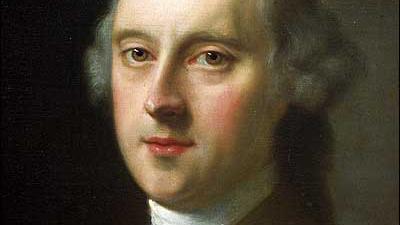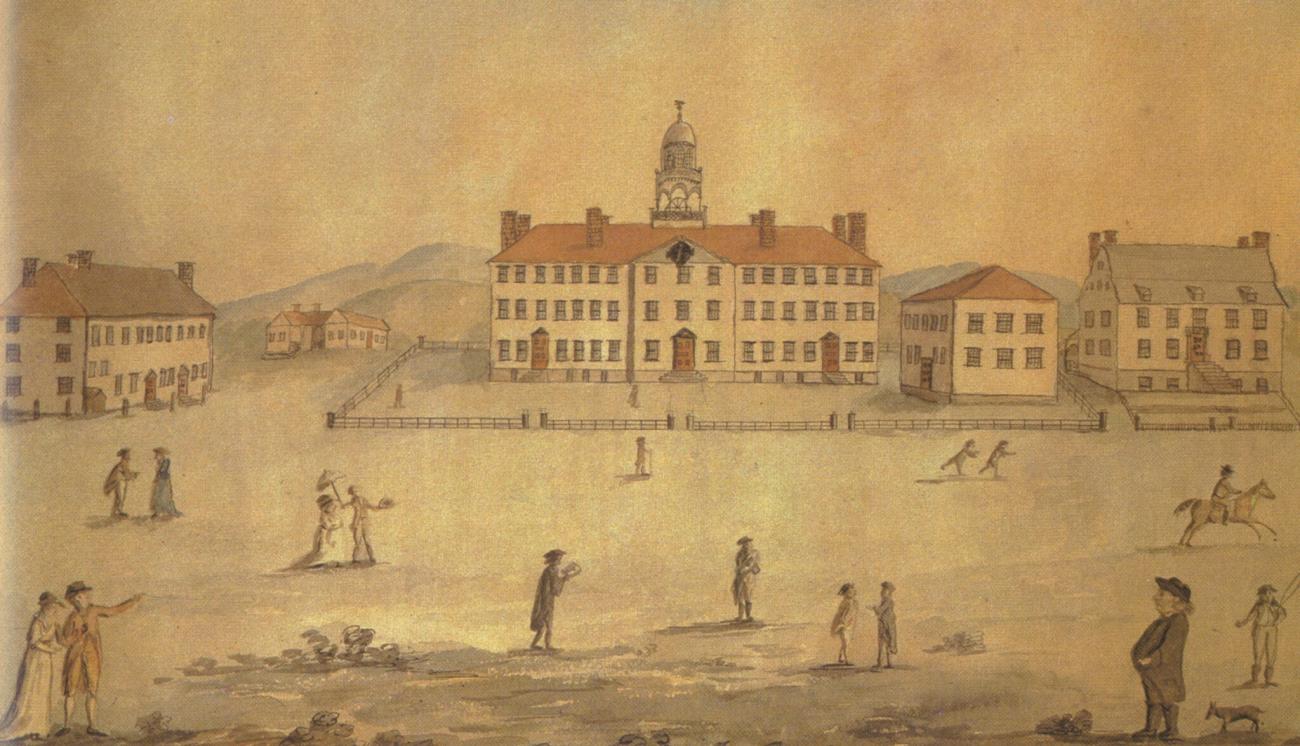William Legge (1731-1801), the Second Earl of Dartmouth, held a number of public offices, including Secretary of State for the American Colonies

Biography
On June 20, 1731, William Legge was born into the aristocracy as the son of George Legge, Viscount Lewisham (1704?-1732), a member of Parliament, and Elizabeth Kaye (1707-1745), the sole heiress of a wealthy family. William completed his education at Westminster School and Trinity College, Oxford, and then went on a three-year grand tour of Europe with his stepbrother, the future prime minister, Frederick North. William assumed the inherited title, the Earl of Dartmouth, in 1750, before his 20th birthday.
Upon returning to England in 1755, he became a member of the House of Lords and began a 47-year term as the Vice President of London’s Foundling Hospital (1755-1802). That same year, William wed Frances Catherine Nicholls (1732/3-1805), an aristocrat with a dowry of £100,000. Their daughter and eight sons continued the noble lineages, and included a bishop at Oxford, an admiral in the Royal Navy and a chaplain to Charles III.
In 1765, Legge spent a year as President of the Board of Trade and Plantations, overseeing matters related to maritime commerce across the Atlantic, enforcement of colonial laws, and naval and land defense. He resigned to pursue his greater interests in Methodist evangelism with George Whitefield, John Wesley, John Newton, and Eleazar Wheelock. Legge joined the cabinet of Prime Minister North as the Secretary of State for the Colonies. Unfortunately, his return to politics coincided with the growing resistance to British rule in North America. Legge believed that Parliament was the ultimate arbiter of colonial policies, yet sought to resolve problems through conciliation and personal relationships with prominent colonists like Benjamin Franklin. Nevertheless, in early 1775, Secretary Legge ordered General Thomas Gage, the commander-in-chief of the British forces and Massachusetts military governor, to quell colonists’ protests.
Legge’s action precipitated the deadly confrontation at Lexington and Concord in April 1775, where British troops were soundly defeated. Two months later in Boston, Gage’s troops lost the battle of Bunker Hill. The outbreak of war eventually led to independence and a new republic. The Revolutionary War would, however, sever Dartmouth College’s primary funding ties.
